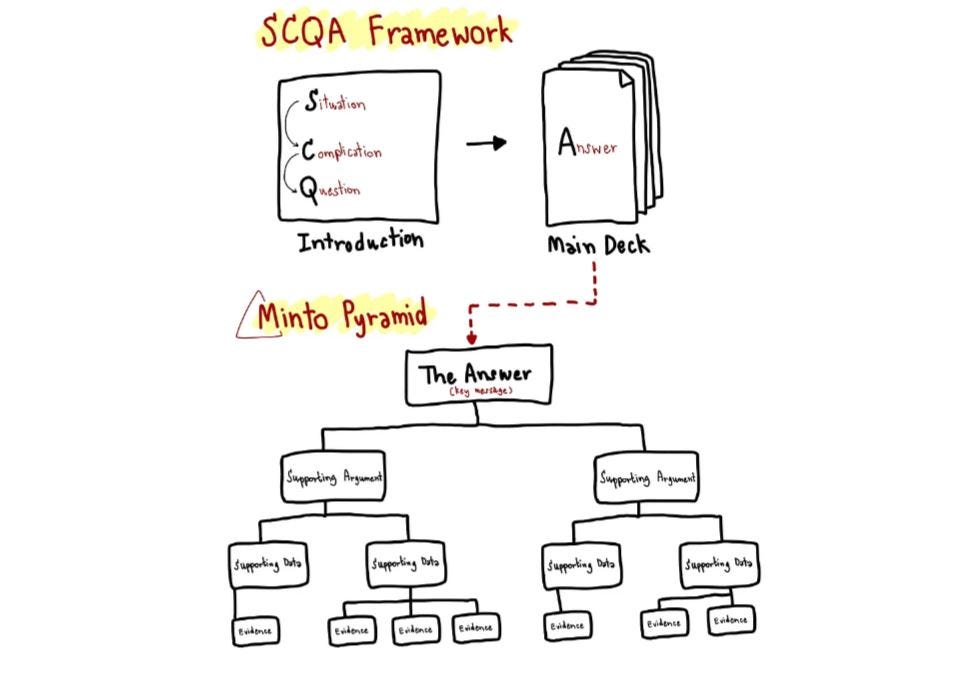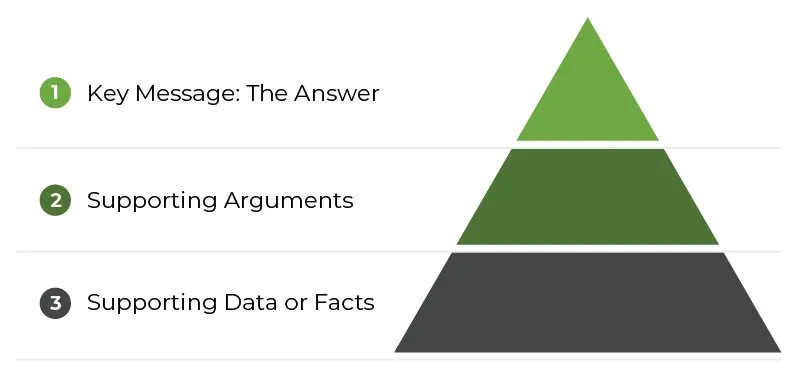A Project Manager's Guide to Writing Like a Pro
12 Writing Tips to Keep Communication & Collaboration Moving.
👋 Hey, Kyle here! Welcome to The Influential Project Manager, a weekly newsletter covering the essentials of successful project leadership.
Today’s Overview:
Project leadership starts with successful communication. You cannot lead others if you cannot adequately share your thoughts and ideas with them.
Many of us know how to write, but there’s a big difference between basic communication and writing that motivates, leads, and fuels team performance.
How can you bridge this gap to not just share information but also inspire and lead your team more effectively?
Today, I’ve curated 12 of the best writing (and editing) tips from journalists, screenwriters, tech companies, and seasoned project managers to help you communicate and collaborate more effectively.
A Project Manager's Guide to Writing Like a Pro
Filed under: Frameworks & Tools
Hello, my friend!
As a project manager, you are in the business of making things happen.
Every email you send, every update you share, and every document you draft is essentially you, selling an idea or a task. Your words are your tools.
Everyone talks about the big-ticket skills in project management - planning, leading, decision-making. But writing? It rarely makes the list.
But think about it. From writing planning docs to stakeholder updates, a lot of our time is actually spent writing.
Good writing is a project management superpower.
Writing is one of the core qualities of the world’s most successful tech companies. Amazon engineers write out their feature ideas before a single line of code is written. Stripe values clear writing so much, their emails come with footnotes!
For us project managers, writing serves purposes beyond just transferring information or clarifying product decisions. Writing well:
Saves time.
Inspires action.
Motivates your team.
Distributes knowledge.
Makes onboarding easier.
The bigger (and more complex) your project gets the more important it is to write well. Writing makes your team work faster and more efficiently. It shares knowledge across the whole project. And forces everyone to really think through issues before adding noise to the process.
Yet, despite all these clear benefits, few of us treat writing with the intention it deserves. Instead, we think of it as just another part of the job, rather than a skill that deserves regular practice.
That's about to change…
Today, I'm bringing you 12 killer writing (and editing) tips from the best in the business - journalists, screenwriters, tech giants, and seasoned project managers to help you communicate and collaborate more effectively.
Framework #1: SCQA
Did you know McKinsey makes $500,000+ on a single presentation?
How can that be? Their secret lies in storytelling, seamless flow, and well-structured arguments.
At the heart of their strategy is the SCQA framework, a method that organizes information into a narrative that's not only clear but utterly compelling.
SCQA stands for Situation, Complication, Question, and Answer - the basic ingredients that create a good story.
Here’s how it works:
Your audience should first understand your topic and identify with it. You make sure they do, by starting with a familiar starting point: the Situation.
In the Complication you sound the alarm. As a result, the audience pays extra attention and feels the urgency of your story. There is a problem, something must be done!
The Question makes them curious. Will an answer be found?
The Answer makes the story ’round’. You show how the complication is solved, and how the question is answered.
Whenever you can, tell a story. Humans are drawn to stories. Our brains automatically build narratives to help us make sense of the world.
Your project updates or emails can follow a similar narrative flow:
Situation/Context: What's the current state or background?
Complication/Challenge: What problem or new development has arisen?
Question/Impact: How does this affect the project? What are the consequences?
Answer/Plan: What's our response? How do we move forward?
Supporting Arguments
Supporting Data
Evidence
Framework #2: Lead with The Answer
In business writing, do this before anything: lead with the answer.
The first line of any message is the most important. People are 5 times as likely to read your headline than the body of your text.
How many times have you written an email at work, read it back and found that it didn't make as much sense as you'd hoped? Or worse, someone else has told you that they can't follow it.
Get straight to the point! Understand that people have busy minds and their attention spans are limited.
Deliver the main point upfront so the reader grasps the main takeaway or knows exactly what’s expected of them. Use the rest of your message to back up your point and dive into the details.
This will vary depending on whether you're in a meeting, managing a project, drafting a report, or sending an email, but the principle remains the same: always consider what your audience needs to know first.
Read also: The Minto Pyramid Principle
10 More Writing Tips for Project Managers
Amazon is (amongst many other things) known for its unique writing culture - they famously banned power point and force everyone to write 6 page memos for meetings. Writing the way they do is an incredibly powerful tool and we can learn A LOT from it.
In 2004, Bezos' passion for reading and writing inspired him to introduce a new structure at Amazon for presenting product and business development proposals. He mandated that all presentations be delivered in writing, conforming to several carefully developed frameworks.
Bezos' key argument for this unconventional approach is that, although written communication requires more time initially, it ultimately saves time due to the resulting clarity and the depth of thought necessary for written presentations. He claims that it's impossible to compose a six-page, narrative-structured memo without achieving clear thinking.
“You can hide a lot of sloppy thinking behind bullet points. The better it looks, the more wary you should be.” - Jeff Bezos
I’ve found the same to be true in project management, where complexity is everywhere.
Here's how you can apply Amazon's writing principles to project management, where clarity cuts through complexity.
1. Know Your Audience
The best writing feels like it was written just for you. As it turns out, that’s exactly what great writers do.
Warren Buffet writes for his sister; Stephen King writes for his wife. Identify your reader:
Who are you writing for?
What do they care about?
How can you show that you’re writing for them?
Understanding your audience builds empathy and helps you recognize that not all writing warrants the same care and attention.
Spending an hour crafting the perfect email response is unnecessary if a straightforward casual message will do just as good for your reader.
2. Structure for Skimmers
Most writing is never read (at least word-for-word). People have busy minds and default to skimming.
A reader should be able to grasp what you’re saying and why just from skimming your document.
Use headings, bullet points, white space, and bold text to highlight key information, making your document easy to navigate.
3. Use less than 30 words per sentence
Setting limits drives clear thinking and force the writer to use fewer words. Simple, brief explanations are usually understood better.
Short sentences improve readability and comprehension, crucial for unfamiliar readers. Stick to one idea per sentence and cut extra words for clearer, more impactful writing.
Due to the fact that → because
Totally lacked the ability to → could not
4. Be objective: Replace adjectives with data
Adjectives are imprecise and don’t contribute to making a decision. Specificity leads to clear results, rapid decision-making, and reduces confusion.
Customers love Prime. → Customers with Prime spend on average three times more than those without, and we retain 90% of them y/y.
Our project has a high user satisfaction → Our project has a 95% user satisfaction rate.
This will make the endeavor extremely successful → This will increase output by 2.5%.
Quantify your statements. Data drives decisions, not vague descriptions.
5. Eliminate weasel words
Words such as "almost" and "significantly" should be eliminated as they create confusion. These words are imprecise and no one knows exactly what they mean.
Nearly all reports→ 87% of reports
Significantly better → +25 bonus points
6. Always ask: Does your writing pass the “So What?” test?
No matter what the reasons are for communication, it should be for a purpose.
Readers should immediately know what action the presenter wants them to take and why it matters. If the action or takeaway isn't obvious, rethink your message.
Clearly state who needs to do what, why it's important, and when it needs to be done to avoid wasting time.
7. If you get a question, reply with one of these four answers:
Jeff Bezos famously only allowed 4 different answers to a question at Amazon:
Yes
No.
A number.
I don’t know, but I will know by X date.
If you're uncomfortable writing or saying option 4, you've got work to do.
8. Use subject-verb-object language
The goal of a presentation is to transfer thoughts to another person with as little confusion of the message as possible.
The simpler the sentences used, the more precisely the ideas will be translated.
The budget was approved by the client. → The client approved the budget.
9. Avoid cluttered words and phrases
Simplify your language. This makes your message more accessible.
Some examples of this that Bezos himself has put forward are:
Utilize → use
In order to → to
Until such time as → until
Due to the fact → because
With the possible exception of → except
Totally lacked the ability to → could not
10. Avoid jargon and acronyms
Ambiguity has no place in a project plan, email, or update.
Companies often use internal jargon, which can confuse new employees and external parties. Always explain an acronym the first time you use it.
Explain "Critical Path Method (CPM)" the first time you use it.
Final Thoughts
I cannot overstate how important strong writing skills are. Leadership starts with successful communication. You cannot lead others if you cannot adequately share your thoughts and ideas with them.
Jordan B. Peterson put it best: “If you can think, and speak, and write, you are absolutely deadly. Nothing can get in your way.” I wholeheartedly agree. Improving your writing also improves your thinking and speaking abilities.
To me, great writing focuses on:
Clarifying your thoughts
Simplifying the delegation process
Making knowledge transfer easier
Eliminating unnecessary meetings
Supplying information for decision-making
Embracing a culture of clear, written communication, as Amazon has, can streamline processes and influence your project outcomes.
I believe that over 70% of unnecessary meetings could be eliminated if the initiator were required to write a six-page memo following these frameworks.
Bezos himself is an exceptional writer, and I highly recommend reading all his shareholder letters. In my opinion, they serve as a masterclass in clear communication.
Until next week and happy writing,
Kyle Nitchen
⚡ Influential Ideas
🎙️ Listen to my “Construction Project Management 101” episode on the Profit Tool Belt Podcast: Apple | Spotify | Youtube

Whenever you're ready, there are 4 ways I can help you:
Upgrade your PM software. Experience the future operating system for construction and real estate development.
Get my full toolbox (free). Access 30+ software and hardware tools I'm using today.
Master scheduling. Elevate your skills as a scheduler, planner, and lean builder with the Takt Planning & Control online course. Use code "Influentialpmtakt" for 30% off.
Advertise in my newsletter. Put your brand in front of 3,500+ construction project managers, leaders, and execs. (Booked out 5 weeks)






Great article, Kyle.
Thanks for this great info! Enjoyed learning about SCQA. I’ll keep that in mind next time I put something together.